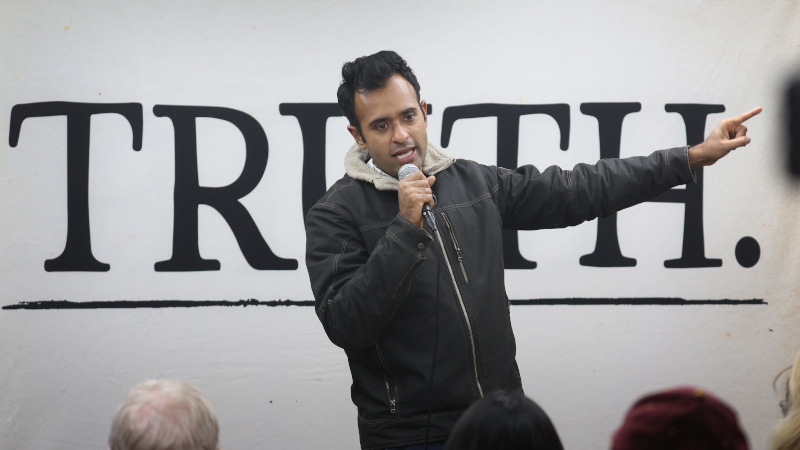Ramaswamy believes the alliance’s “expansionism” risks sparking a major conflict with Russia, his spokeswoman says
Republican presidential candidate Vivek Ramaswamy has signaled that he intends to pull the US out of NATO if he wins the 2024 election, Politico reported on Friday, citing sources.
According to three people familiar with Ramaswamy’s thinking, he made the remarks privately while speaking to supporters. Publicly, the American entrepreneur of Indian descent has described Washington’s potential withdrawal from the military alliance – in which it plays the leading role – as a “reasonable idea.”
Tricia Mclaughlin, the spokeswoman for Ramaswamy’s campaign, neither confirmed nor denied the reported plans. However, she told Politico that her boss had “serious concerns that most NATO allies fail to meet their military investment commitments.”
According to Mclaughlin, the presidential candidate “also believes that post Cold War NATO expansionism has unnecessarily increased the risk of major conflict with Russia.”
Ramaswamy does not enjoy a high level of support even among members of his own party, trailing behind other GOP presidential candidates – notably Florida Governor Ron DeSantis and former US President Donald Trump, who is widely considered to be the frontrunner. However, Politico suggested that Ramaswamy could potentially join an administration led by Trump, who has positioned himself as a NATO skeptic, if he returns to the White House.
Numerous media reports suggested that Trump threatened to pull his country out of the US-led military bloc during his first term in 2018 while urging Washington’s allies to ramp up their defense spending. The GOP frontrunner’s current campaign platform is more vague on the matter, stating: “we have to finish the process… of fundamentally re-evaluating NATO’s purpose and NATO’s mission.”
Amid reported concerns in Europe that Trump might try to abandon Washington’s NATO commitments, US President Joe Biden last month signed an $886 billion bill funding the Pentagon which, among other things, would require congressional approval for the US president to leave the alliance.
Questions about NATO’s fate have intensified with the alliance locked in a standoff with Russia over the Ukraine conflict, with members providing massive military assistance to Kiev, a campaign repeatedly denounced in Moscow. Russia has for decades viewed the alliance’s expansion toward its borders as an existential threat, with Russian President Vladimir Putin saying that Ukraine’s desire to join the bloc was one of the key triggers of the current conflict.


